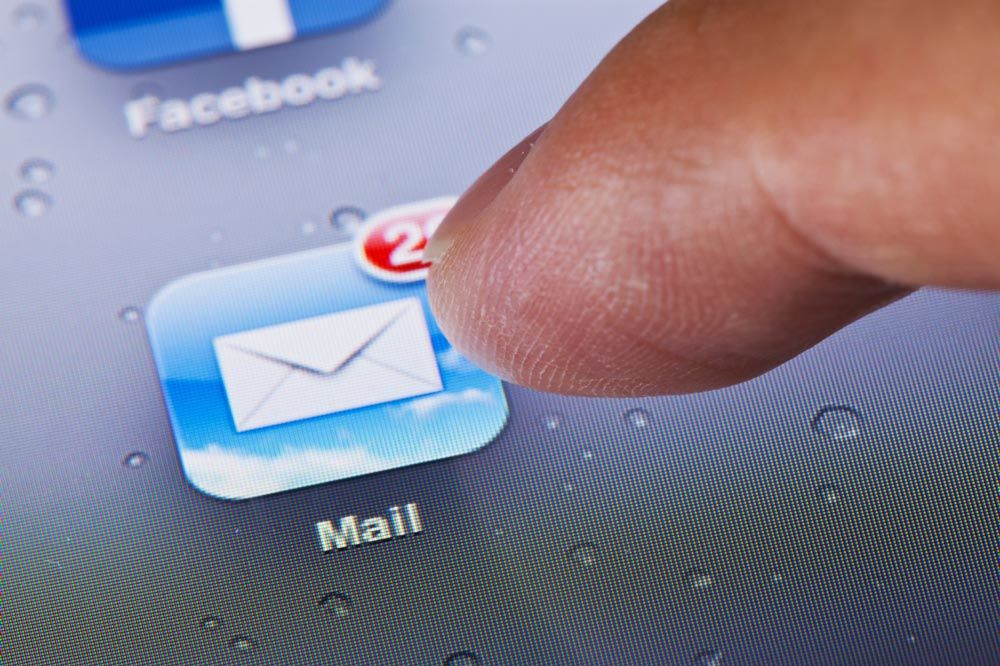HR topics have been making a splash in headlines recently from new paid sick leave laws to important national conversations about the plight of America's working families. All this news has a clear impact on our work as HR professionals, and it's an exciting time to be in the profession. That said, it's one more thing to keep track of. It can be difficult to stay up-to-date!
That's why we've decided to bring top HR news stories to you. We hope you enjoy our first HR news roundup! As always, we welcome your feedback in the comments section below.
As mobile technology's advanced and become more and more accessible, employees across the globe have felt increasingly burned out, stressed, and strapped for time. Well-being, productivity, and work/life balance are all negatively affected by this trend.
What's most interesting about Germany's proposed solution? It's being addressed at the federal level as a public health crisis. Under German law, it's already illegal to contact employees during their vacations. A new proposed "anti-stress law" would make it illegal to send emails outside of normal working hours.
The proposed anti-stress law has popped up in the news periodically this fall. A recent poll by Germany's Forsa Institute reported 52% support for the law, which will be formally proposed in 2015. We'll be monitoring this story closely as it develops.
Gallup founder Donald Clifton, a former educational psychologist, knows why it's important. Research suggests that colleagues who are friends work together more effectively, are more productive, and stick around longer. Employees with "work friends" are also more motivated to do the job well because who wants to let their friends down?
Employers and company culture set the tone for friendly, social workplaces. Events like holiday parties and other employee appreciation events are a great starting place. But it's also up to managers: hire employees who are a cultural fit, make sure they find their niche, recognize if they're struggling, and work together to address the issues. This is more than "touchy-feely HR" it's best business practice.
What baby boomers care about most probably isn't what's keeping a Millennial up at night so how do we identify the supports we need to provide? How do we make our benefits offerings equitable? To really hit the target, benefits departments need to listen to what ALL employees want and then work to create equitable benefits packages. Access to an on-site child care center will ease your working moms' & dads' stress if their 4 p.m. client meeting hits the fan. But what about the childless 40-something who'd planned to pick mom up from the hospital after that same meeting?
The article outlines four major shifts, largely catering to younger generations, which have already happened: Personalized Perks, Plain Speak, Paper is Passé, and Prevention Over Cure. How many of these changes has your organization witnessed?
This story's author is spot-on: when organizations try "to cater to the mean, [their] existing traditional plans don't really satisfy the needs and wants of any generation." It's tempting to cater to the future of your workforce, but don't forget about older workers.
Every organization's employee population is unique. The benefits you provide them should be, too.
That's why we've decided to bring top HR news stories to you. We hope you enjoy our first HR news roundup! As always, we welcome your feedback in the comments section below.
The German Government May Say 'Nein' To After Work Emails
National Public Radio (NPR) | Listen > Global HR leaders know that the definition of work/life balance varies around the globe. This story provides great insight into Germany's cultural expectations for work and life as with many other European nations, the 35 hour work week is a "sacrosanct line" that, when crossed, has significant ramifications.As mobile technology's advanced and become more and more accessible, employees across the globe have felt increasingly burned out, stressed, and strapped for time. Well-being, productivity, and work/life balance are all negatively affected by this trend.
What's most interesting about Germany's proposed solution? It's being addressed at the federal level as a public health crisis. Under German law, it's already illegal to contact employees during their vacations. A new proposed "anti-stress law" would make it illegal to send emails outside of normal working hours.
The proposed anti-stress law has popped up in the news periodically this fall. A recent poll by Germany's Forsa Institute reported 52% support for the law, which will be formally proposed in 2015. We'll be monitoring this story closely as it develops.
You Need a Work Best Friend
New York Magazine | Science of Us | Read more > Many of us will recognize this question from Gallup's annual 12-question employee engagement survey: "Do you have a best friend at work?" Why do we as employers care? So what if our employee has a "work best friend?"Gallup founder Donald Clifton, a former educational psychologist, knows why it's important. Research suggests that colleagues who are friends work together more effectively, are more productive, and stick around longer. Employees with "work friends" are also more motivated to do the job well because who wants to let their friends down?
Employers and company culture set the tone for friendly, social workplaces. Events like holiday parties and other employee appreciation events are a great starting place. But it's also up to managers: hire employees who are a cultural fit, make sure they find their niche, recognize if they're struggling, and work together to address the issues. This is more than "touchy-feely HR" it's best business practice.
The Next Generation of Benefits Plans
Benefits Canada | Read more > Our northern neighbors provided an excellent synopsis of what's eating total rewards folks today: providing customized benefits packages that fit the needs of a multigenerational (four generations, to be exact) workforce.What baby boomers care about most probably isn't what's keeping a Millennial up at night so how do we identify the supports we need to provide? How do we make our benefits offerings equitable? To really hit the target, benefits departments need to listen to what ALL employees want and then work to create equitable benefits packages. Access to an on-site child care center will ease your working moms' & dads' stress if their 4 p.m. client meeting hits the fan. But what about the childless 40-something who'd planned to pick mom up from the hospital after that same meeting?
The article outlines four major shifts, largely catering to younger generations, which have already happened: Personalized Perks, Plain Speak, Paper is Passé, and Prevention Over Cure. How many of these changes has your organization witnessed?
This story's author is spot-on: when organizations try "to cater to the mean, [their] existing traditional plans don't really satisfy the needs and wants of any generation." It's tempting to cater to the future of your workforce, but don't forget about older workers.
Every organization's employee population is unique. The benefits you provide them should be, too.





